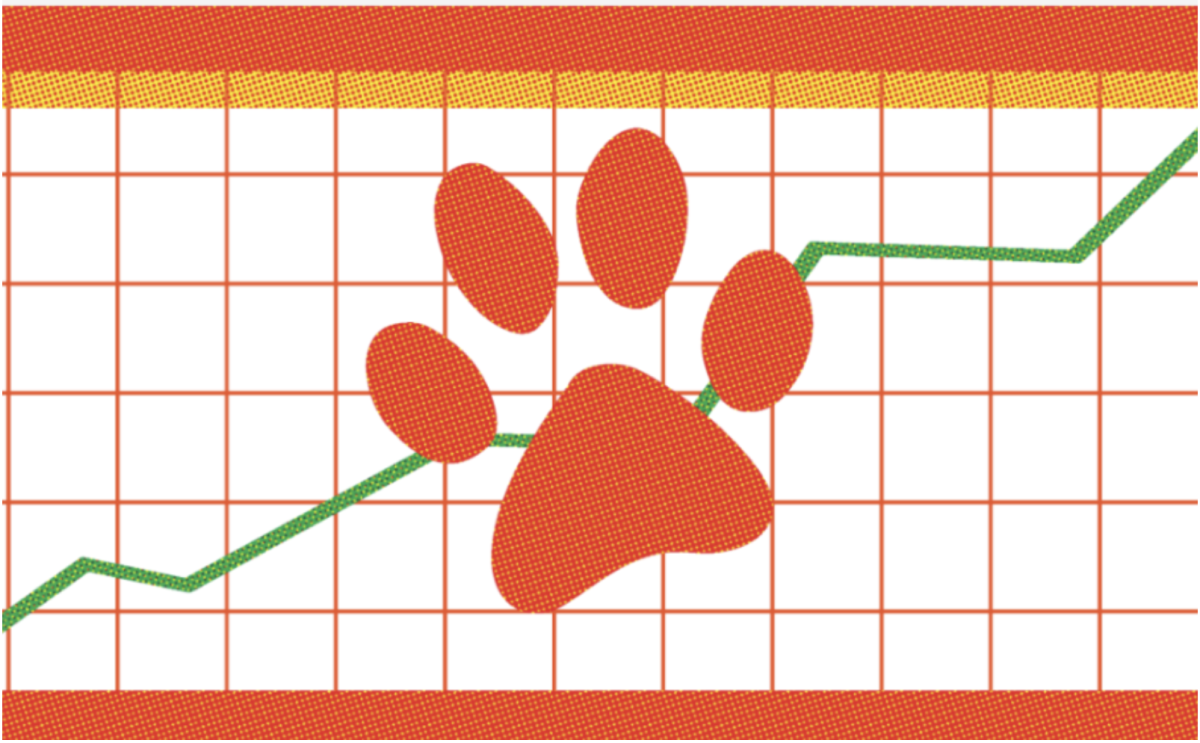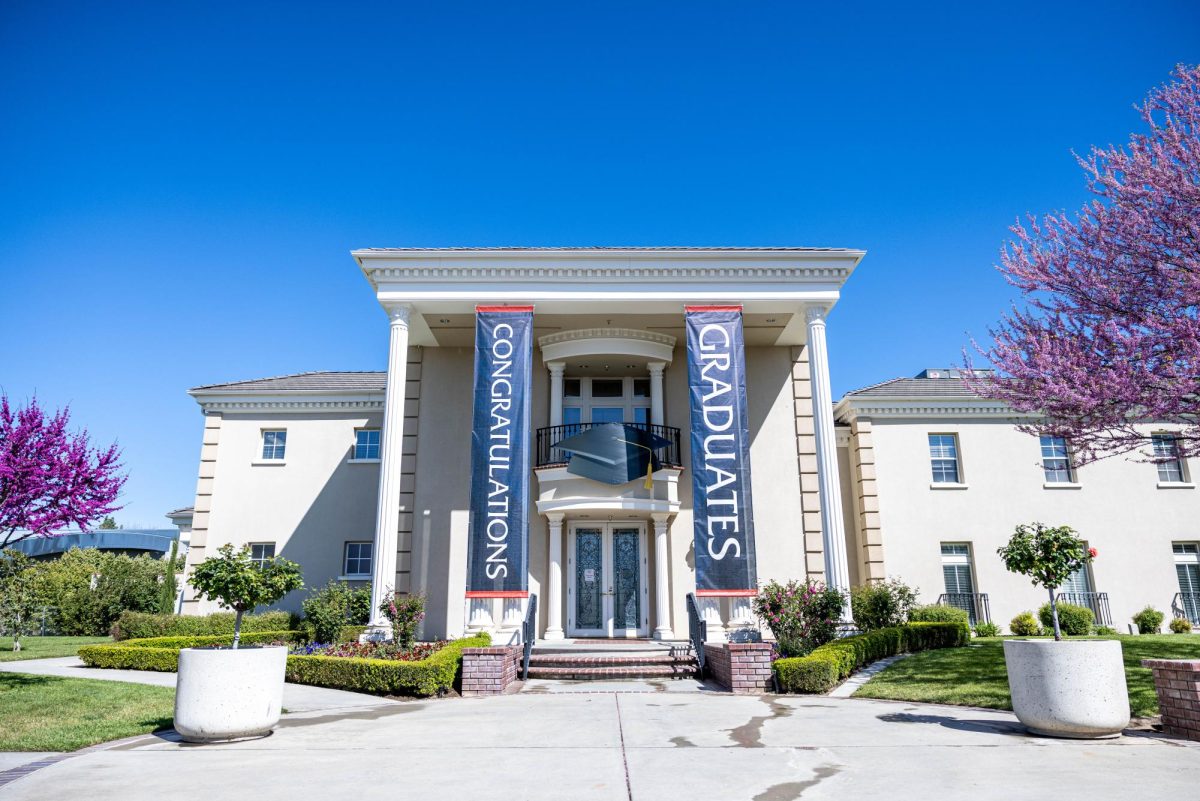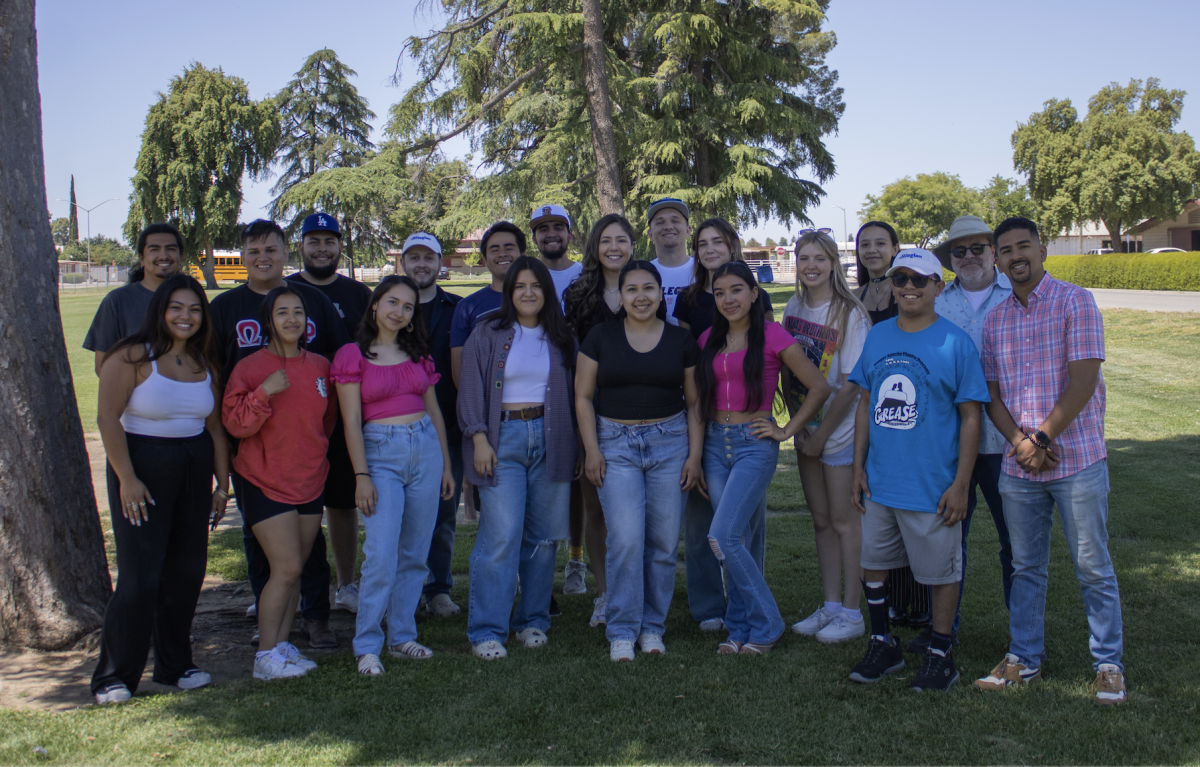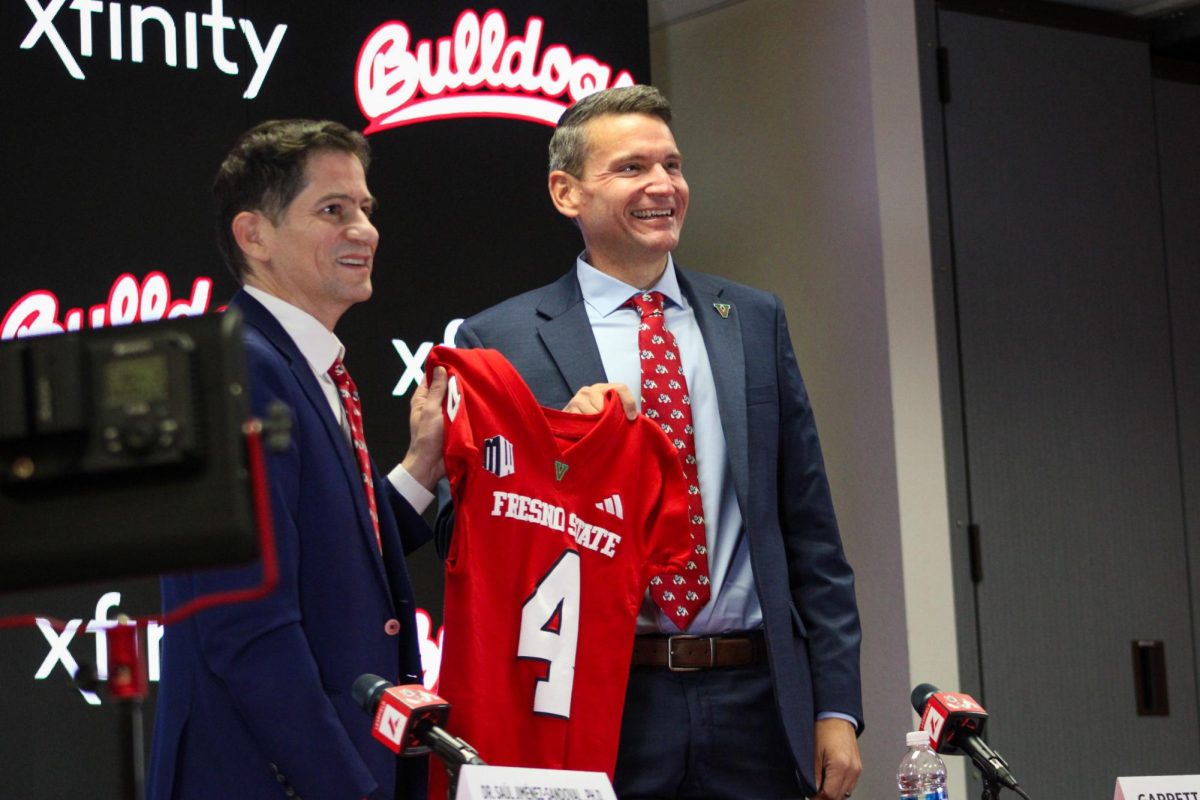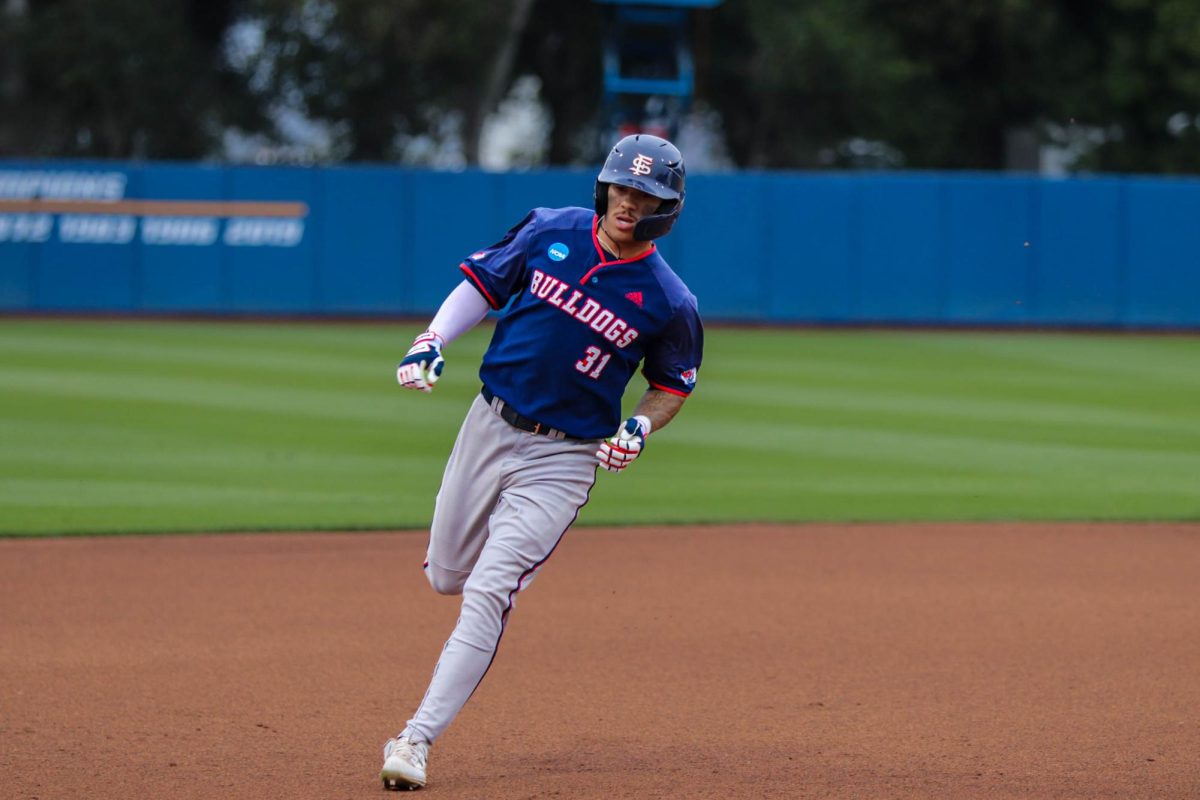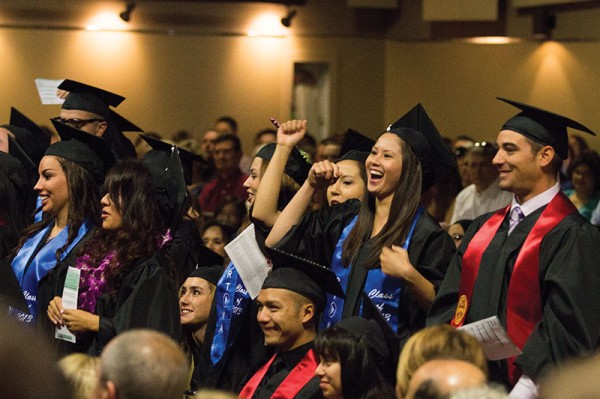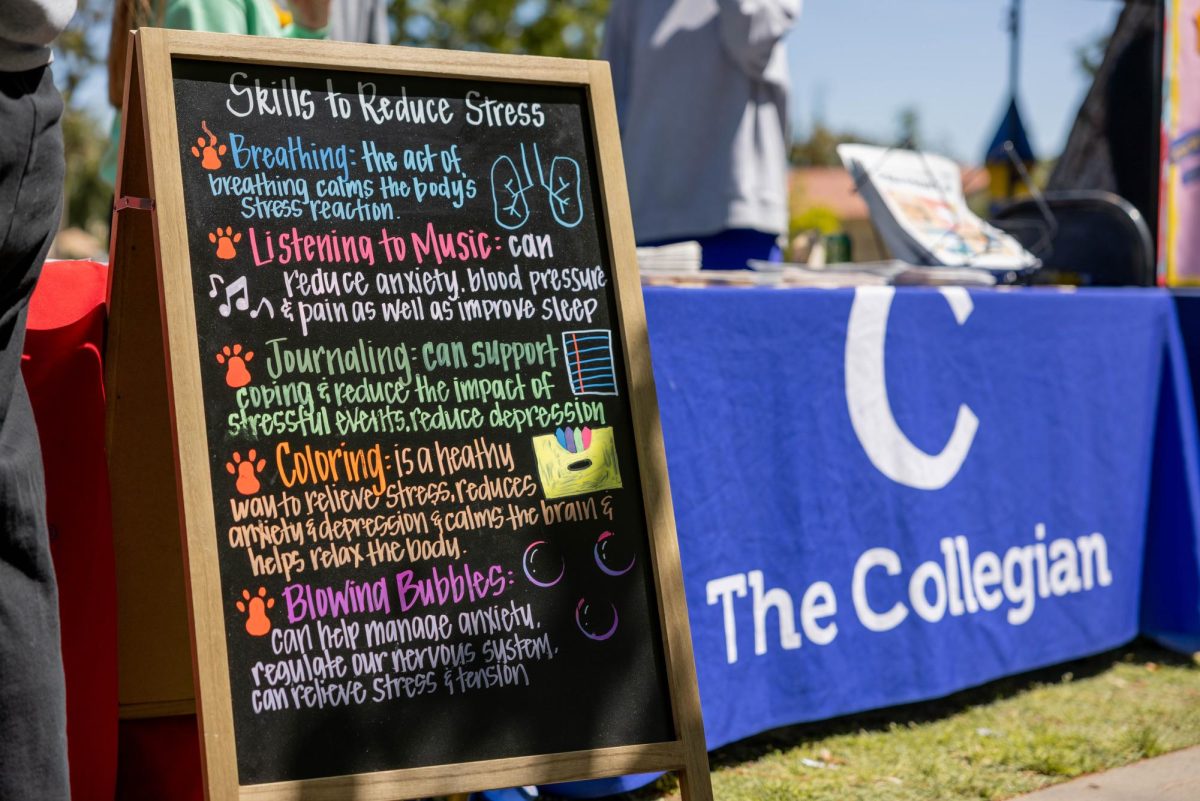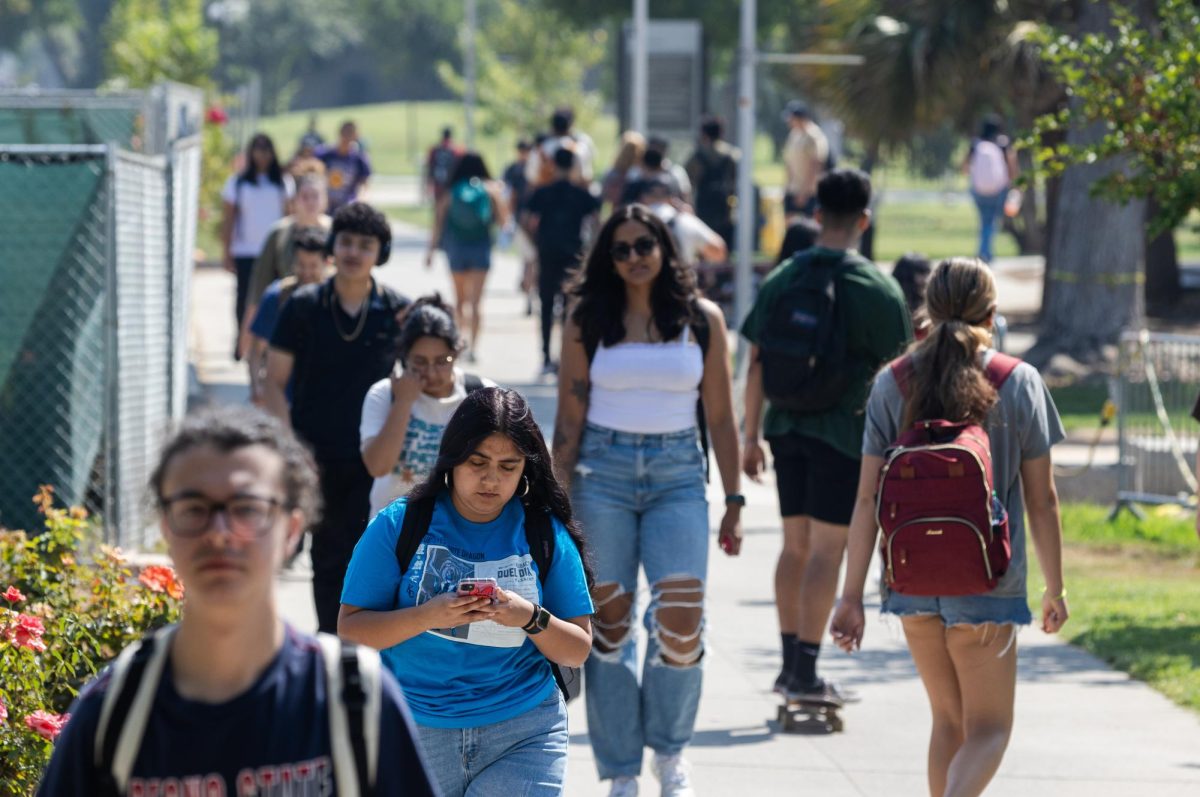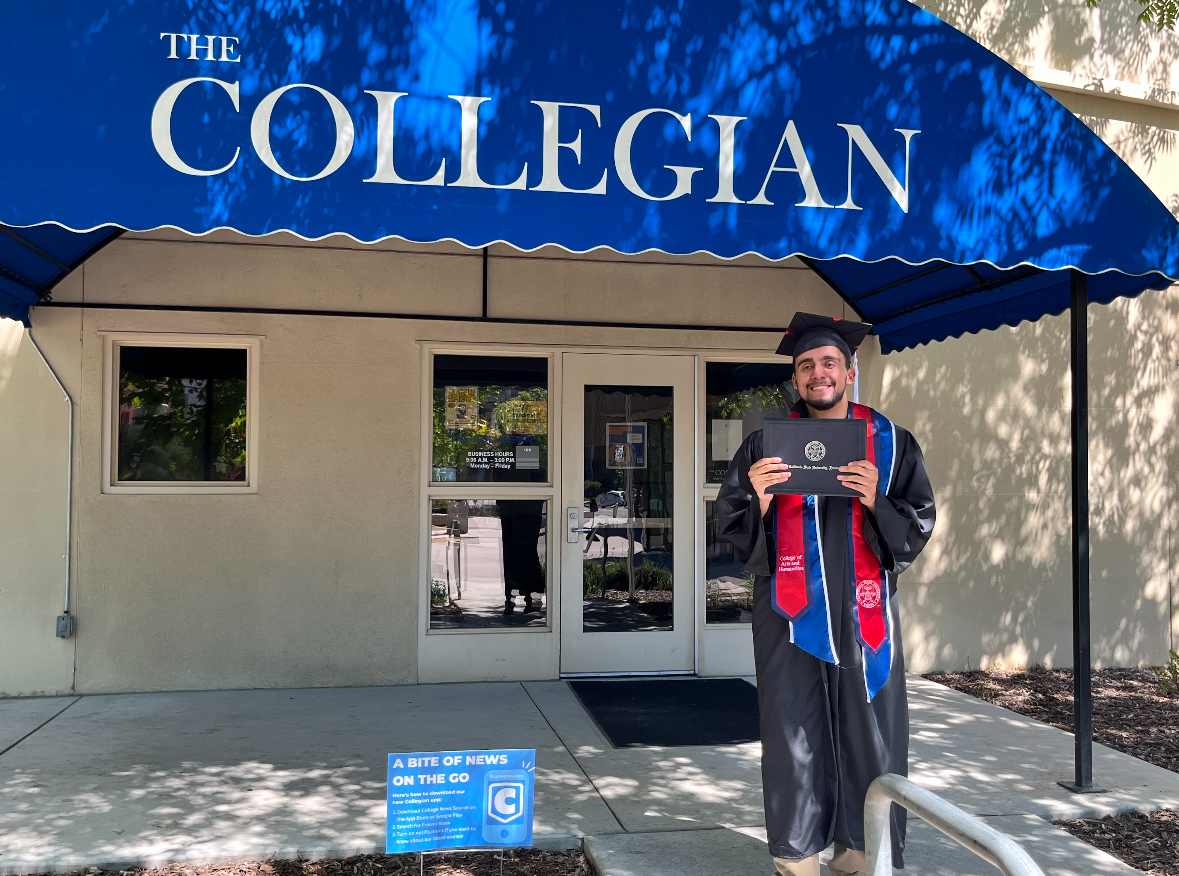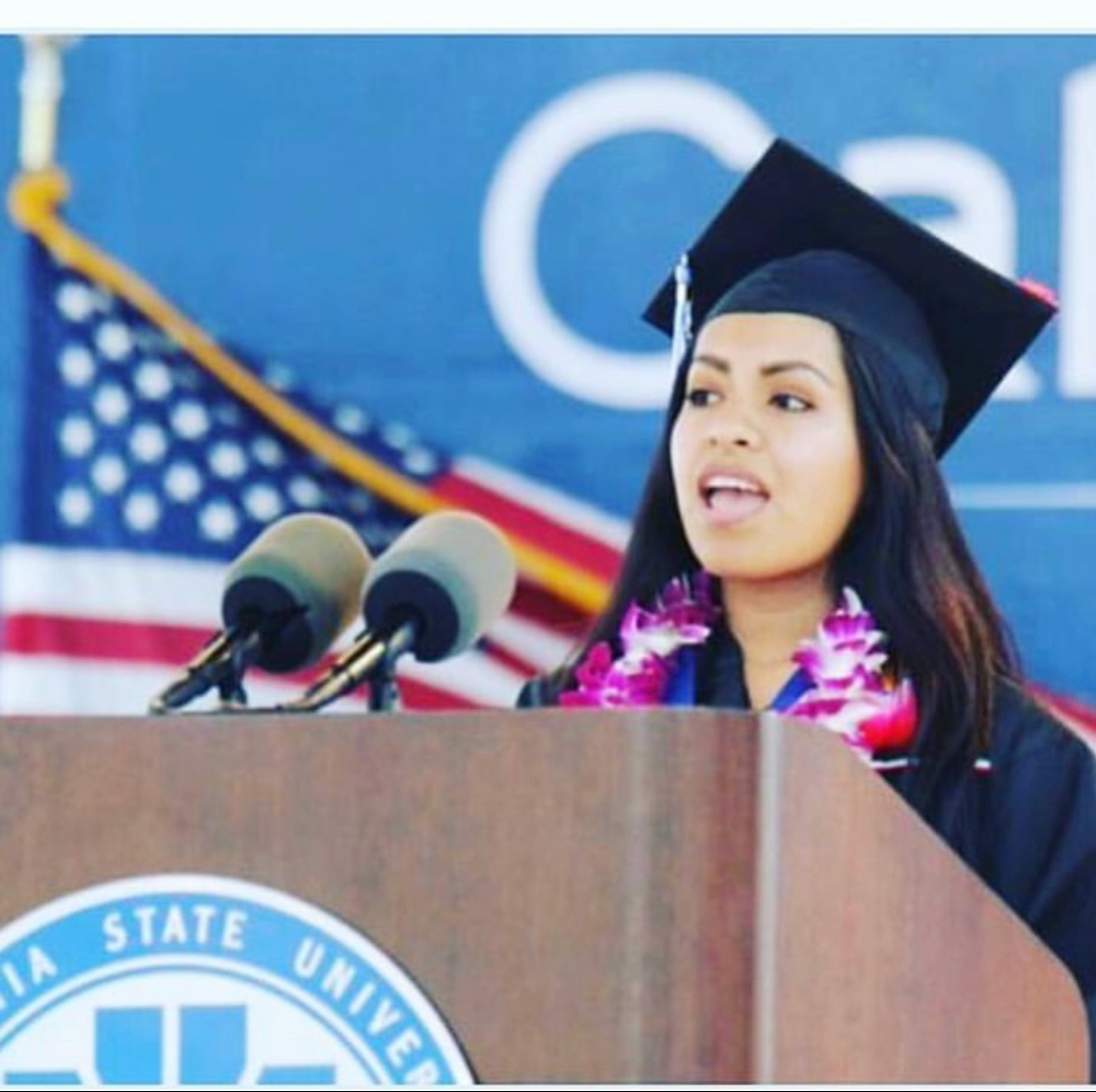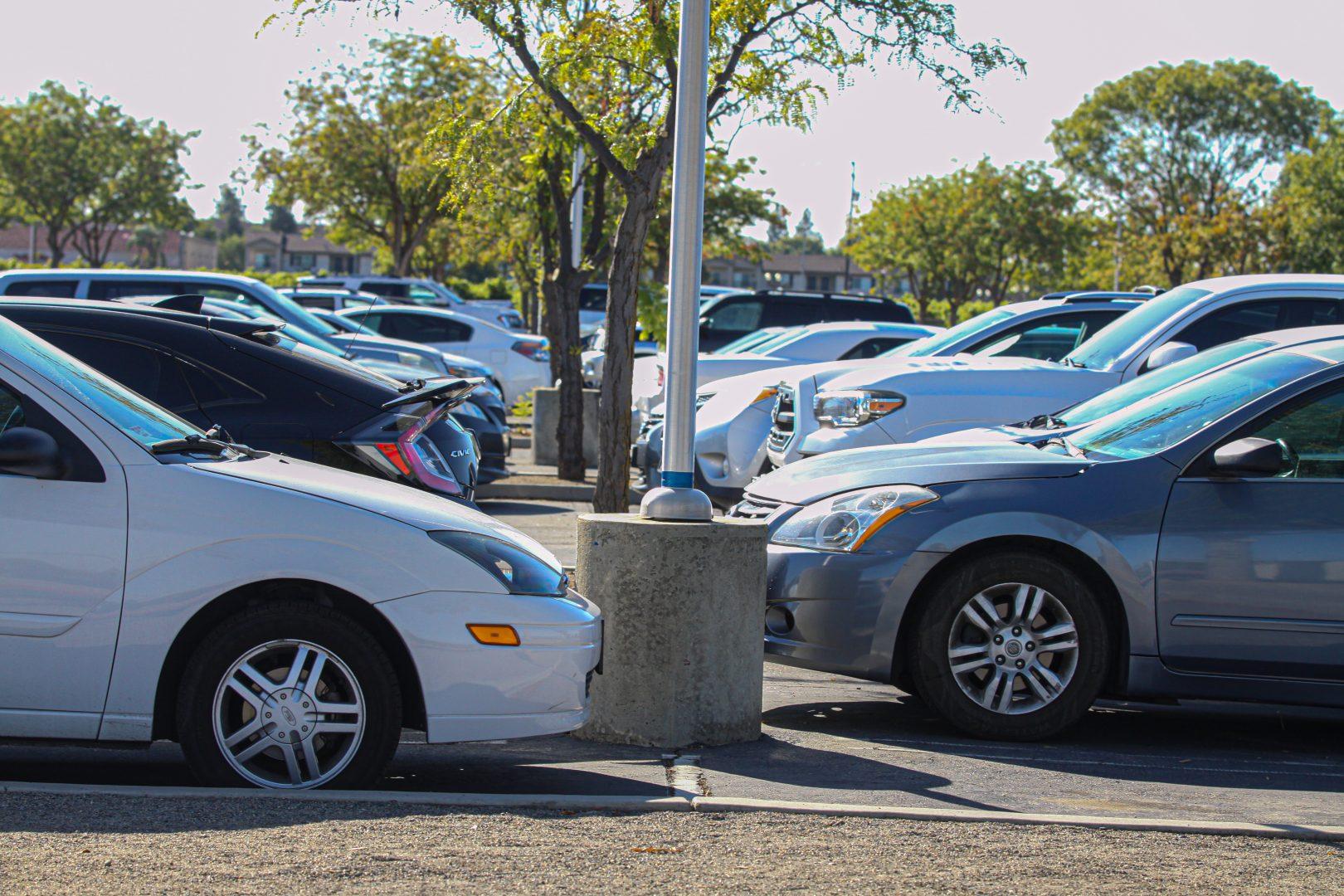The Collegian released an investigative article earlier this semester regarding the increase in the amount in student fees and state funds for Fresno State Athletics. The article caught the attention of faculty members around campus.
In a 43-1 vote, the Fresno State Academic Senate passed a resolution for an end to “runaway” athletics spending using student and taxpayer dollars. The resolution was prompted by a Collegian investigation.
At today’s Academic Senate meeting, the agenda includes the University Budget presentation by Debbie Adishian-Astone, vice president for administration and CFO; and the Academic Affairs Budget presentation by Vice Provost Alam Hasson. It is likely that senators will ask questions about athletics funding.
Before the resolution vote was taken, The Collegian spoke to Aric Mine and John Wakabayashi from the Earth and Environmental Science Department, Thomas Holyoke from the Political Science Department and Kathleen Dyer from the Child and Family Science Department to see what their reactions were to the amount of money athletics is receiving compared to academics.
What was your initial reaction when you found out about the increasing rate of funding being directed to athletics?
Mine: I was surprised, not necessarily by the increase, but by the disproportionate increase to athletics and the redirection of what are labeled instructional-related funds for athletics.
Wakabayashi: I was [already] aware because of the perennial athletics budget deficit that gets backfilled from the academic side. I was unaware of the rate of increase, nor the absurd proportion of diversion of student fees that should be supporting students rather than the athletic program.
Holyoke: I have more or less known about this for a long time. It has not really been a secret that the university president was moving a lot of money from state taxpayers and students to the athletics department. President Welty did it. President Castro did it, so I am not surprised that President Jiménez-Sandoval does it too. I also had some idea that the athletics department was in need of more money for a variety of reasons, so it is not surprising that increasing amounts of money are going there.
Dyer: I have been dismayed at the amount of state funding and tuition dollars going to athletics for quite some time. The athletics budget far exceeds what is reasonable and what we can sustain. Athletics serves a small number of students and is unrelated to the university’s mission. The level of funding is simply disproportionately high. Administrators have said that athletics serves as a tool for recruiting students by bringing young people to campus for games, but they have offered zero evidence of this. Additionally, they have failed to support other community initiatives that also have the potential to serve as recruiting opportunities, such as planetarium tours, farm tours, the Peach Blossom Festival, etc. and those activities are related to our educational mission, while athletic events are not.
$92 of the $132 IRA goes to athletics, while only $10 goes to academic support programs. Given the fee helps fund academic support programs and clubs, how fair is it to students who pay this fee only for a small amount to be used on services intended to help them?
Mine: It’s incredibly unfair. The title of the fund is “Instructional Related Activities” and I’m not sure how you could justify that money being able to support athletics.
Wakabayashi: The small portion of the IRA funds that goes to students is highly beneficial and students in my department have benefitted hugely. At universities I attended the department I was associated with had weekly speakers. Here, our IRA funding might get us a speaker every month or so because the budget is too small to cover more than that. Moreover, many potential speakers would require too high travel expenses (i.e. air fare) for funding to cover. If all of the IRA funds went to the students we could have weekly speaker programs for many programs that want them.
Holyoke: Not at all fair, and frankly an embarrassment. Students should be expressing some real anger at the abuse of their student fees.
What programs/university operations do you think need some of the funding that goes to athletics?
Mine: I think there’s demand for that money all across campus. There’s demand among students. I don’t know how aware students are of that amount of their IRA funds going to athletics. But as [President Jiménez-Sandoval] and other administrators have said, we have deferred maintenance costs. We have infrastructure that needs to be updated. In my mind, all of those take priority over athletics. As a former athlete, I understand the value of athletics and it’s a great opportunity for students.
Wakabayashi: I think the priority for any university are instructional activities, broadly speaking. This covers faculty and staff salaries, teaching supplies, support of faculty and student research, support of students in multiple ways.
Holyoke: The purpose of any university is education. Therefore the proper use of this money is for things that directly impact education. If more faculty are hired, then students will have smaller classes, which is universally recognized as a better educational experience. Better quality classrooms would be nice, or even a new educational building since the buildings we currently have classes in are old and in bad condition. I think it would also be good to make sure that every single student has a laptop for their work. This would make a lot of things easier. Or more money to help students buy their textbooks, or support them in internships, or fund them on study abroad experiences.
Do you consider athletics to be an instructionally related activity? Why or why not?
Mine: Athletics is not at all instructionally related, especially since there are only 400-something student-athletes on campus. For a campus of 24,000 to be funding something that’s so disproportionately weighted toward a few individuals seems pretty outrageous to me.
Wakabayashi: There is nothing “instructionally related” about athletics, so the diversion of any of these funds for athletics is a total injustice. However, if all of these funds went to instructionally-related activities, it would be a huge benefit for students. Let’s take guest speaker programs that are usually funded as a part of club funding.
Holyoke: Not really, no. I am sure that for a small number of student-athletes there are some wonderful opportunities they are getting, but they are getting it by being subsidized by other students and state taxpayers. We are a university, not an entertainment business.
What do you think could be done to address this issue?
Mine: I think the [Academic] Senate resolution is certainly a step in the right direction. The students should advocate strongly in conjunction with the senate, perhaps. But also asking hard questions about the process moving forward regarding transparency and the overall justification for paying those fees. I think students should attend the university budget meetings that are coming up and ask questions to the administration about this on why we’re so outside the median for public institutions.
Wakabayashi: We need to advocate for a reallocation of student fees and other funds that are diverted from the academic side to the athletic side. This will require non-stop activism on the part of students and faculty. For too many years the current practice has been viewed as “business as usual,” but if we want to return the priorities of this university to where they belong: to instruction. Making these changes would represent a radical change in the way things are done on this campus and at the vast majority of D1 universities (the vast majority of which have budget deficits), but it is a very worthwhile cause that is worth fighting for. The bottom line is that we, as students and faculty, will need to remain persistent. You have got the ball rolling for us and we need to stay on it.
Holyoke: We should not be trying to compete in Division I sports with this money. I often hear that this is for the community. If true, then the community should pay for a Division I sports program, otherwise, it is not at all worth it.
Dyer: Providing on-campus child care for student- and faculty-parents is a much higher priority for promoting student success, but currently receives only a tiny fraction of the support provided to athletics. Child care is largely inaccessible and unaffordable for members of our community, which seriously impinges on the ability of parents to put their mind (and time) to the tasks of teaching and learning. We could also promote the value of a Fresno State degree by providing more support for the faculty to do the scholarship that puts us on the map as an R2 institution. Faculty scholarship keeps us at the cutting edge of knowledge formation. It makes the CSU a leader in public higher education. Right now, faculty are required to produce scholarships, and yet all of that work is done on a volunteer basis. All of our time is officially allocated to other things, so our research is donated, unpaid labor. This must change if we have any hope of recruiting and retaining talented faculty.






